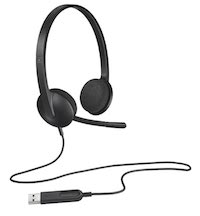Work Anywhere: The Location-Independent Lifestyle
 We assume you’re mostly like us: a bit established (shall we say comfortable?) in your career. You’re probably a professional, maybe college-educated, with a desk job. If you’re lucky, maybe you get to work at home if even only a day or two a week. Yet you want to travel more than the 3 or 4 weeks you earn in personal leave each year. You yearn to spend an entire summer in Europe, an entire winter in the Caribbean, or even to travel full time while you’re still young enough to enjoy it, but you aren’t old enough or prepared to retire. And you wouldn’t even mind working a bit while there.
We assume you’re mostly like us: a bit established (shall we say comfortable?) in your career. You’re probably a professional, maybe college-educated, with a desk job. If you’re lucky, maybe you get to work at home if even only a day or two a week. Yet you want to travel more than the 3 or 4 weeks you earn in personal leave each year. You yearn to spend an entire summer in Europe, an entire winter in the Caribbean, or even to travel full time while you’re still young enough to enjoy it, but you aren’t old enough or prepared to retire. And you wouldn’t even mind working a bit while there.
Even with the travel bug nipping at your heels, because you’ve got a bit of career and comfort and maturity under your belt, we also assume you’re not interested in many of those ways of making a living while traveling that so many travel bloggers write about. Like washing dishes in a hostel, being a deck hand on a yacht, picking crops at harvest time, teaching English to locals, or playing your guitar for change on a street corner (aka “busking”, even if it is in Paris).
In short, you’re just like us: 40-, 50- or 60-something, mature, professional, baby-boomer empty-nesters with a severe case of wanderlust. You want to take longer vacations, extended holidays, and enjoy travel while you can still climb church towers, ski big scary mountains, walk and hike all day, or cross a few exotic locations off your bucket list.
Here’s the thing: there are no easy answers, no silver bullets. But with some planning and sheer will power, you can find a way to adapt your career to a location-independent lifestyle, just like we have.
Learn How to Adapt Your Skills to Location Independence
You have skills, and the most marketable of those skills are valuable. If you can package those skills to make them known and attractive to the right people, they’ll pay you for those skills regardless of where you’re located. It’s true that you might have to occasionally visit your clients or employers, but that could be part of your travel and (hopefully) an acceptable tradeoff for getting to work where you want the rest of the time.
The idea is not to throw out your career and skills in favor of the obvious local-work options (itinerant labor at a B&B) but to figure out how to adapt your skills to be delivered to a paying market that doesn’t require you to be on site. Develop a thorough inventory of your working skills. Don’t confuse jobs with skills: jobs are the working positions for people with skills in your industry. You’re really after identifying your skills at this point: those things you do in your job very well. Sit down and brainstorm. Carry a pad around with you at work for a week or two and jot them down when they occur to you. Talk to your coworkers about all the skills you apply, not just the obvious.
Once armed with a list of your working skills, hilite the ones you think you’re best at and the ones you think are most valuable. You might be tempted to exclude or cross-off those skills you don’t enjoy doing, but don’t do that just yet: you might find them extremely valuable in a remote sense and they might actually become more enjoyable when you conduct them remotely. And besides, we aren’t saying work is supposed to be all fun and games (t’s a 4-letter word, isn’t it?), just that it should support your location-independent lifestyle. Next, start brainstorming the people, the companies, and the industries that utilize those skills. Think outside the box, i.e. not the people and companies you’ve worked with, but all the potential interested parties. What you’re doing is a market analysis, and you’ll likely realize there are many ways to apply your skills. You can polish this analysis up by hiliting the companies that most need your skills and are most apt to pay you to deliver them remotely.
Let’s consider a couple of examples. At first you might think a lawyer is about as tied to a desk as one could be, but realize that an attorney’s skill inventory includes not only rendering legal opinions (which certainly sounds like something that could be done remotely to us) but also reading and analyzing documents, writing contracts and agreements, editing documents, and so on. If that lawyer also has some in-demand unique skills, say some deep expertise on one particular tax or labor law, they could potentially find opportunities focusing solely on writing documents for companies sensitive to those laws. In another example, consider a teacher: how on earth could that skill be applied remotely (actually, take a look at k12.com and teacherspayteachers.com)? Thinking about the skills of a teacher, from child psychology to training to tutoring to writing to editing to organizational skills and more, you could identify work opportunities as diverse as ghost writing, online tutoring, and specialized recruiting.
The critical thought here is not just to do this market analysis, but to start thinking independently, to start to become self-sufficient. In short, to become a location-independent entrepreneur.
Ideal Skills for Remote Careers
Obviously some skills lend themselves to working remotely more than others. The most famous of remote worker careers is computer software work, including programming, website development, or working with any complex software product that you might have significant expertise with. If you’re a programmer, like Chuck, then great! You’re in the catbird seat when it comes to location-independent careers, with skills that not only can be delivered from anywhere you can connect to the Internet but also is in extremely high demand. But what if you’re not a programmer?
Almost every professional career now requires some high level computer use; is there a software application you use in your job that you’re an expert in? For example, engineers and architects almost universally know AutoCAD: the best skill here for remote working might prove to be expertise in AutoCAD, not the actual engineering and architecture skills. Doctors and nurses use Electronic Medical Records software, contractors use estimating and bidding software, accountants use bookkeeping software, human resources and payroll administrators use HR and payroll software; there are myriad opportunities in selling software, configuring software, supporting software, training people to use software, and even managing and using that software, regardless of where you’re located.
 Even if you don’t have high levels of expertise in any business software in your job, there are skills you apply in your work that could be delivered remotely. Whatever it is that you’re an expert in, there are opportunities to help people apply or develop similar expertise. This can come about as either consulting (getting paid to deliver highly specialized work) or training (teaching people how to do some specialized work). If you’re a plumber (seemingly another of the most location-dependent careers imaginable) and you’re really good at estimating jobs, there are plumbing and HVAC contractors who would pay you to estimate for them (consult with them) or who will pay you to teach them or their employees how to improve their estimating.
Even if you don’t have high levels of expertise in any business software in your job, there are skills you apply in your work that could be delivered remotely. Whatever it is that you’re an expert in, there are opportunities to help people apply or develop similar expertise. This can come about as either consulting (getting paid to deliver highly specialized work) or training (teaching people how to do some specialized work). If you’re a plumber (seemingly another of the most location-dependent careers imaginable) and you’re really good at estimating jobs, there are plumbing and HVAC contractors who would pay you to estimate for them (consult with them) or who will pay you to teach them or their employees how to improve their estimating.
Speaking of training, this is likely one of the best opportunities for lucrative remote work, particularly if you have a computer networking background. If you can get certified as a trainer for Microsoft, VMWare, Oracle, Google, etc. your opportunities are second only to programming for location independence. The current state of the art in technical training is live instructor-led training over the web, innovated by companies like ExecuTrain. If you are a certified technical trainer, get in touch with us: we know of specific opportunities. And if you think you have a unique and valuable skill that you could teach, and that people would want to learn, get in touch with us.
If standing in front of a class doesn’t appeal to you, there’s another way to make money by capturing your expertise: writing it down. Quite a few travel bloggers suggest that you can make money writing travel blogs, but we can assure you that a living based on travel blogging would be a tough road to hoe. We think the best opportunity to make money writing is in writing, self-publishing, and promoting your own technical how-to books. If you’re a small business owner, how many $20 books have you bought to learn everything from QuickBooks to web sites and sales techniques to how to hire better people? If you think you have an idea for a how-to book, we’d love to hear from you about it.
Probably some of the best specific remote work opportunities we can suggest are marketing, sales, and recruiting. These are three areas that are always in demand, lend themselves well to remote work, can be wonderfully lucrative, and can be applied from almost any business background. Great marketing people, especially those with hot new social marketing skills and marketing technology experience, are like programmers: in high demand and well-able to work remotely. Good sales people are pure gold to any company in any industry. Even if you’ve never sold before, if you have great expertise in almost anything you’re 80% there when it comes to sales (get this book and read it). And finally, if you have a knack for hiring and come from almost any technical or healthcare background, you might consider recruiting, aka executive recruiting and head hunting: we know a few recruiters who make more with a single placement than many full time travelers would need to make in a year.
By now you’re probably getting the idea that we’re advocating you figure out how to be self-sufficient, how to be a location-independent entrepreneur rather than a remote worker. We think this will be the best way for you to achieve location independence. All the ideas you develop for having a work-anywhere career are going to require you to market and sell yourself.
 Finding Location Independent Work
Finding Location Independent Work
If you are in a job that you think can be accomplished remotely, you can–as many have suggested–pitch to your boss that you can and should work remotely. We think getting this strategy to work has way more to do with your boss being completely dependent on you than it has to do with whether you can justify working out of the office. But before you tell your boss that you prefer to work out of the office, we suggest you thoroughly think through your plan B, and if you do that, make sure it’s a solid plan that doesn’t put you right back into seeking location independence another year down the road.
As we said above, you’re going to have to figure out how to market and sell your skills. These days, that–like job seeking–starts with networking, and LinkedIn is the cornerstone of professional networking: learn how to use it, build your network, and get actively involved with groups. Still, don’t forget to leverage your personal network: meaning ask your coworkers, colleagues, partners, clients, etc. where they think you could find work opportunities (just be careful not to compete with your current employer: that’s a hornet’s nest). For project-style work, check out freelancing sites like Guru.com, UpWork.com, ELance.com, and Freelancer.com, but be aware that you’re competing on a global playing field, with lots of people around the world willing to work for much less than you are. If you’re seeking a regular job, whether part-time or full-time, that just allows you to work remotely, take a look at FlexJobs.com: this site is designed specifically to connect employers and employees in remote working arrangements. And finally, especially if you work in a professional field like legal, medical, engineering, etc., consider finding a good recruiter to help market you: not all will want to represent a worker with specific requirements (like being able to work remotely), so plan to interview quite a few to find one who inspires your confidence and understands what you’re after. And be sure to understand how their commissions work: do you pay them, or does the employer pay them?
The bottom line is that a location-independent career probably isn’t going to just come your way: you’re going to have to go get it. Know where to look, learn how to market yourself, develop confidence in your skills, and go sell yourself.
Working Remotely
Now that you’re honing in on a location-independent career, you’ve got to get your “virtual office” set up. You’ll need a current and capable notebook, one that supports your skills and work, and one that won’t break your back carrying it around (you are going to be traveling with it, remember?). Don’t forget to license all the software you’ll need to be productive. Make sure you understand thoroughly how to connect to WiFi and get Internet from your computer: once on your own, you won’t have access to an IT department to help you out. And on your notebook, make sure you have Skype installed, sign up for a paid Skype account, and invest in a good headset that is compatible with your computer and Skype (we highly recommend a headset with a USB cord rather than a BlueTooth headset: they’re more reliable and the sound quality is better).
Staying in touch is critical for remote work. Make sure you have a great, reliable email provider, and make sure you have access to it from all your devices. Use features like “VIP” so that you get instant notifications when you get an email from a client, your employer, or important partners. If you aren’t one of those people who constantly keeps their email inbox cleared, you probably should consider becoming one. You can allay any fears of your being thousands of miles away by consistently replying to emails quickly.
 You’ll also need to put some thought into your cellular provider. This might not be a big requirement if your travel goals will be limited to North America, but if you plan to go abroad you’ll have to evaluate the international options at your disposal. We’ve found T-Mobile to offer the best international plan, with free international texting, free (albeit slow) data services, and low international per-minute rates. Obviously you’ll prefer to use Skype over WiFi from your notebook for placing calls, but you’ll periodically need to receive calls, for which you don’t want to get paid ridiculous roaming charges. As a backup, buy an unlocked phone: as a last resort you can buy a local SIM card for data. We’ve carried one around since June 2014 and have yet to use it, but having the insurance policy is nice. To nicely combine your email and phone services, take a look at Google Voice.
You’ll also need to put some thought into your cellular provider. This might not be a big requirement if your travel goals will be limited to North America, but if you plan to go abroad you’ll have to evaluate the international options at your disposal. We’ve found T-Mobile to offer the best international plan, with free international texting, free (albeit slow) data services, and low international per-minute rates. Obviously you’ll prefer to use Skype over WiFi from your notebook for placing calls, but you’ll periodically need to receive calls, for which you don’t want to get paid ridiculous roaming charges. As a backup, buy an unlocked phone: as a last resort you can buy a local SIM card for data. We’ve carried one around since June 2014 and have yet to use it, but having the insurance policy is nice. To nicely combine your email and phone services, take a look at Google Voice.
Finally, now that you’ve found your location-independent career, perfected your virtual office, and hit the road, don’t forget to set aside time to actually get work done! Designate days and times for certain types of work, e.g. billable project work on Mondays, networking-marketing-sales on Tuesday and Thursday mornings, etc. Leverage time zone differences to your advantage: tour and play in Europe’s sites in the morning, and work afternoons when your American clients or employers arrive in their offices.
We hope all of the information above helps you find a way to travel longer and travel more.
Need Help? Let Us Know!
We want to help! Drop us a line.







